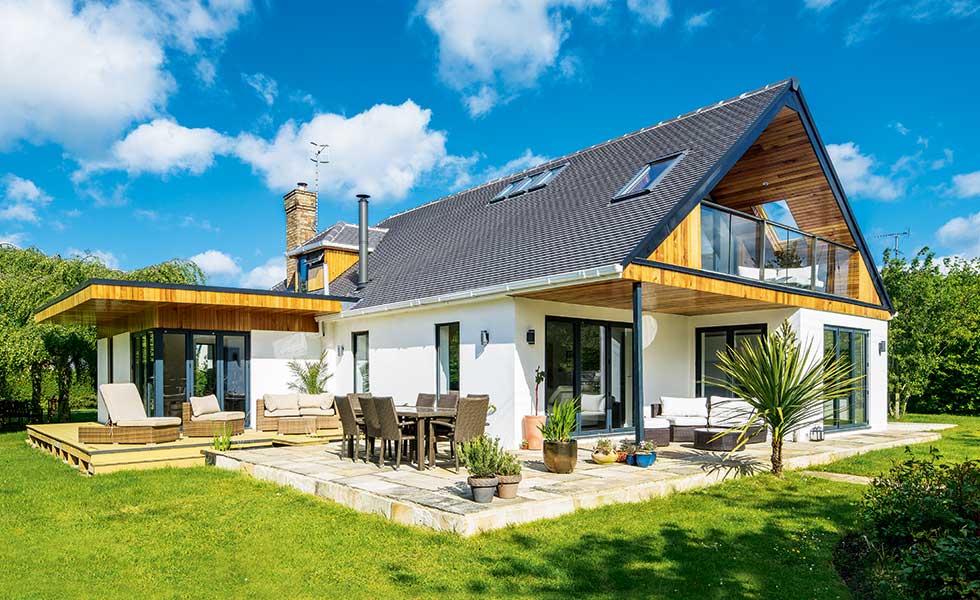We all want to adapt our house designs to our specific lifestyles. What better than a house extension to add that extra valuable space for a growing family? The good thing with house extensions is that they do not force us to disrupt our current home living. What’s more, extending a house, modernizes our space and improves efficiency. If you are considering a house extension, here are 4 factors to reckon with.
The Time Scale
The exact time we need to extend the house matters a lot. It is unreasonable to think that we can call an architect and have them build our home in the same week. The process of choosing a home designer and getting started on the project can take several months. Sometimes you have issues with mold and other health issues in the areas where you want to have the extension. Calling in services similar to Mold Removal Services might add extra costs to your budget. You then also have the issue of these types of services costing you time as well as money, but it is very important that you make sure all health concerns are fully addressed before you continue on. What if, say, the area you want to extend your house in is infested with pests? You would need some time to determine this and call Illinois exterminators (if that is where you live) to clean the space for you. Hence, it is important to allocate enough time for planning and set realistic deadlines to avoid unnecessary stress. Here is a general time scale of some other things to consider when extending:
- Two weeks for appointing a qualified architect
- Four weeks for reviewing the proposal and design work
- Eight weeks for obtaining permission from local authorities
- Four weeks for applying for the approval of building regulation
- Four weeks for sourcing for a competent builder and getting the estimate
Neighboring Properties
Sometimes, our house extension proposal can affect neighboring homes. Perhaps there is a party wall or major trees that need to be uprooted. We must get to know who owns the partitioning hedge or wall. What if the neighbors make a fuss about the wall? If that is the case, would you then have to look for a party wall surveyor in Richmond, West London (or elsewhere) to resolve the dispute? Is there a possibility that the extension will darken the neighboring garden? These considerations are critical to ensuring a harmonious neighborhood. Many homeowners do not interact with neighbors before extending a house is a perfect time to have coffee and explain the project. Everyone around needs to get on board. The conversation may become intense, but the important thing is to stay calm when resolving objections.
Reasons for Extending the House
Many times we want to extend our homes without planning on how to use the extra space. It is good to have a roomier house for a growing family or to add more storage space. But we should ask ourselves whether it brings any value or solves pre-existing problems. A house extension makes economic sense only if it offers a value greater than its cost of construction. This is not an easy thing to factor out. The best way to assess is by checking local premises to see how much they sold for. Knowing the ceiling value in our locality allows us to adjust our extension plans is needed.
House Extension Options
In as much as we want to save the budget, we must be creative when choosing a house extension. We can always count on a good architect to determine whether we need extra space at the back or front of the house. Expanding to the sides seems like the most viable option, but it is good to consider how it flows and fits. We must be careful not to change an old room into a murky aisle. There is no need for a corridor that will eventually fill up with old materials, boxes, and knickknacks. A designer helps us to make informed choices with expert insights and drawings. Types of house extensions range from:
- Conservatories, orangeries, and outbuildings
- Basement and cellars
- Loft conversions- dormers and mansards
- Garage and rear extensions
- Accessory dwelling units (also known as ADUs)
- Wrap-around
- Single/double/multi-storey
Sometimes we think we can design our homes, but the truth is we need a structural engineer who understands all the building regulations. Talking to previous clients ensures that we get our desired level of quality for home extensions.
The Cost
The question we should be asking is how much we can reasonably afford. Calculating the overall cost helps to prevent disappointments when receiving the quotation from the builder. Budget planning starts even before we appoint an architectural designer. Then the professionals should give recommendations and the available alternatives since they are experienced in the field. In the end, we are looking to align the design and scale of the new structure with our budget.
We can finally avoid the hassle of moving to bigger houses by extending our homes. We don’t need to worry about sending our children to new schools and juggling between jobs. It is overwhelming to settle in an unfamiliar place but deciding on a house extension means we can remain in the same neighborhood that we love. Usually, extending a home increases its value. That’s why we ought to consult the best architect to give us innovative design ideas that are not only beautiful but practical.




